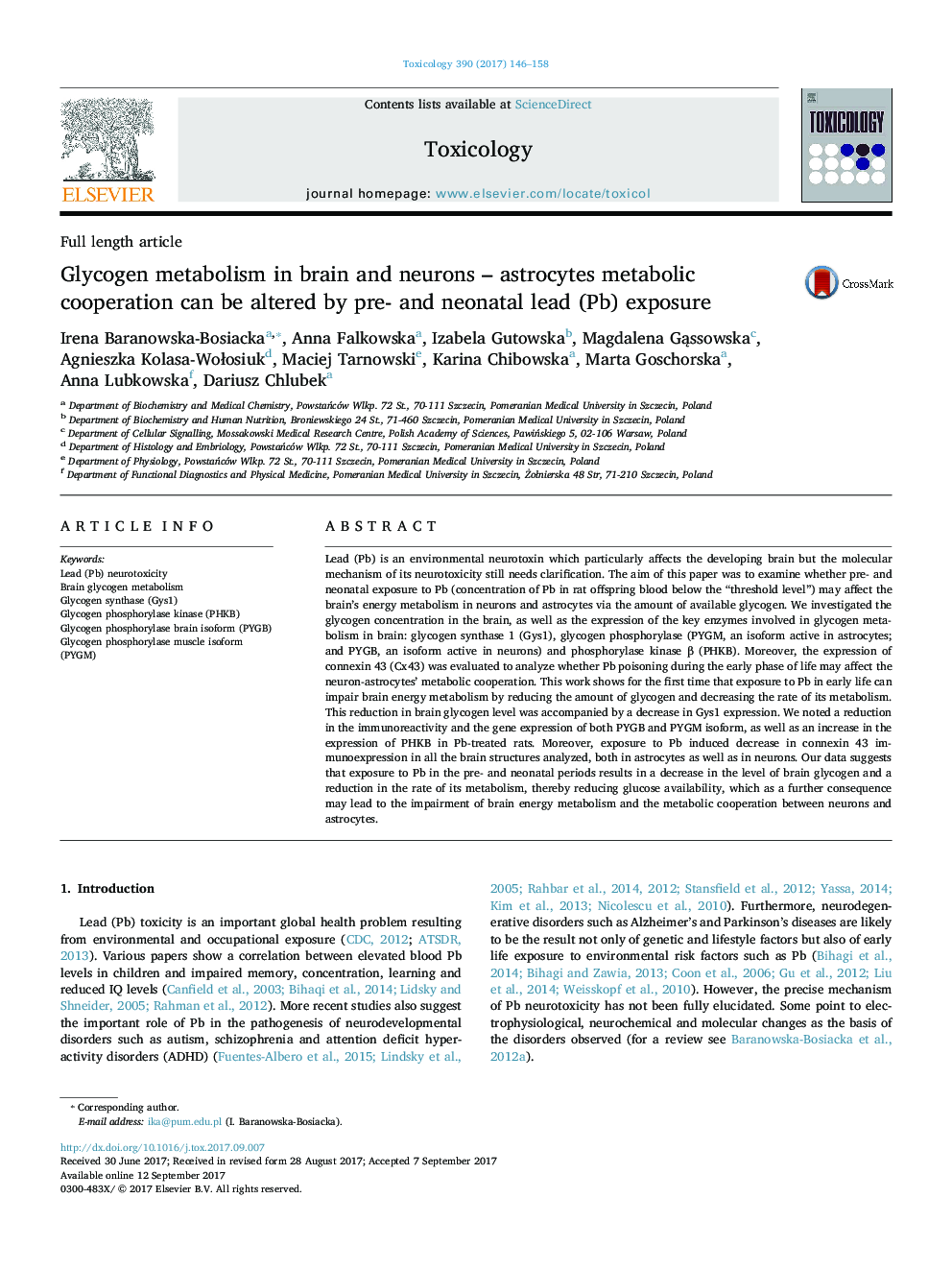| کد مقاله | کد نشریه | سال انتشار | مقاله انگلیسی | نسخه تمام متن |
|---|---|---|---|---|
| 5561698 | 1562282 | 2017 | 13 صفحه PDF | دانلود رایگان |
- The pre- and neonatal exposure to lead (Pb) result in a decrease in glycogen metabolism rate in the brain.
- Pb toxicity mechanism is associated with reduced expression of glycogen synthase and phosphorylase.
- Pb lowers the availability of glucose impairing energy metabolism in neurons and astrocytes.
- Pb contributes to the impairment of neuron-astrocyte metabolic integration.
Lead (Pb) is an environmental neurotoxin which particularly affects the developing brain but the molecular mechanism of its neurotoxicity still needs clarification. The aim of this paper was to examine whether pre- and neonatal exposure to Pb (concentration of Pb in rat offspring blood below the “threshold level”) may affect the brain's energy metabolism in neurons and astrocytes via the amount of available glycogen. We investigated the glycogen concentration in the brain, as well as the expression of the key enzymes involved in glycogen metabolism in brain: glycogen synthase 1 (Gys1), glycogen phosphorylase (PYGM, an isoform active in astrocytes; and PYGB, an isoform active in neurons) and phosphorylase kinase β (PHKB). Moreover, the expression of connexin 43 (Cx43) was evaluated to analyze whether Pb poisoning during the early phase of life may affect the neuron-astrocytes' metabolic cooperation. This work shows for the first time that exposure to Pb in early life can impair brain energy metabolism by reducing the amount of glycogen and decreasing the rate of its metabolism. This reduction in brain glycogen level was accompanied by a decrease in Gys1 expression. We noted a reduction in the immunoreactivity and the gene expression of both PYGB and PYGM isoform, as well as an increase in the expression of PHKB in Pb-treated rats. Moreover, exposure to Pb induced decrease in connexin 43 immunoexpression in all the brain structures analyzed, both in astrocytes as well as in neurons. Our data suggests that exposure to Pb in the pre- and neonatal periods results in a decrease in the level of brain glycogen and a reduction in the rate of its metabolism, thereby reducing glucose availability, which as a further consequence may lead to the impairment of brain energy metabolism and the metabolic cooperation between neurons and astrocytes.
Journal: Toxicology - Volume 390, 1 September 2017, Pages 146-158
